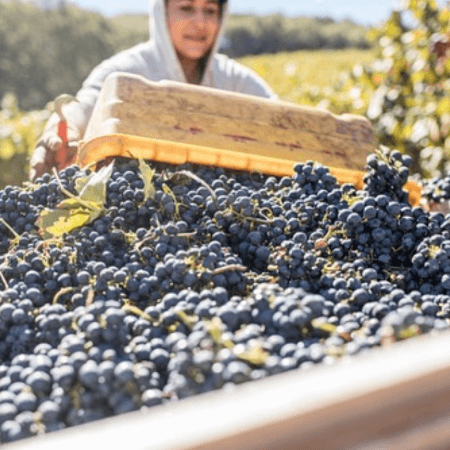April signals the arrival of spring and welcomes the beginning of Earth Month, a time when many people may be searching for simple but impactful ways to live more sustainably. But, living more consciously doesn’t mean steering away from life’s little luxuries, like enjoying a glass of great wine. In fact, the wine industry is becoming a fast growing change-maker in sustainable agriculture.
“As farmers, we can be part of the problem or part of the solution around climate change,” says Joseph Brinkley, director of regenerative farming for Bonterra Organic Estates, the country’s largest Regenerative Organic Certified winery. “It’s important that our industry finds ways to mitigate the climate crisis and cultivate a better future for our planet.”
So, when it comes to wine, how do you know what is actually making a difference and what is simply a clever, but unsubstantiated, claim? Here are four straightforward tips to choose a wine that is actually ecofriendly and will make you feel proud to purchase in April and beyond.
1. Know your labels
The most popular certification that many notice is the USDA Organic Seal, which indicates that 95% or more of the ingredients are certified organic with no GMOs. However, there is a new certification, Regenerative Organic Certified. This distinction goes beyond the traditional organic standards by emphasizing the regeneration of soil health, animal welfare and social fairness.
“Certifications are critical to maintaining the integrity of any environmental claim, since each certification a winery obtains requires the company to follow stringent guidelines,” says Brinkley. “Otherwise, anyone can claim anything on a label, but it’s the vetted certification process that proves the company is actually making a difference and holding itself accountable.”
2. Find diamonds in the rough
Napa and Sonoma have long been regarded as the winegrowing epicenters, but it also means that land and soil has been turned over and processed significantly over the last several decades. Explore wines from lesser known locations such as Mendocino County, California, and Texas Hill Country.
3. Trust the experts
Experience and purpose is everything, and that’s why consumers should look for wine that has been in the sustainability space since their first bottle.
“Creating a product that’s sustainably focused should be more than just a trend,” says Brinkley. “As grape growers and winemakers, we have a responsibility to forge a path to a better future through the way we grow and produce. At Bonterra, we have been producing organic wine for more than 30 years and still remain the No. 1 organic winery in the country today.”
4. Taste the difference
It’s not always about sensing the notes of strawberry or aged oak or tannins, but taste should be about individual preferences and enjoyment. There’s no right way to enjoy a glass of wine. Instead, wine that is produced organically, intentionally and sustainably should have a taste that keeps you coming back for more simply because you like it.










 TOP
TOP
